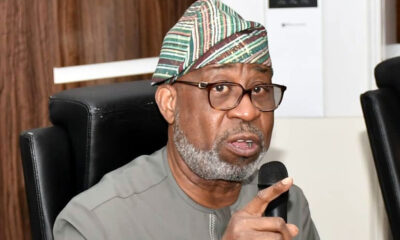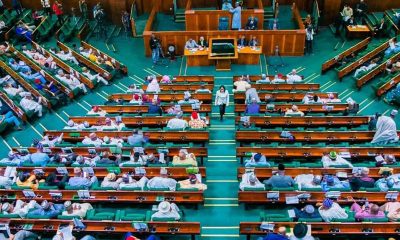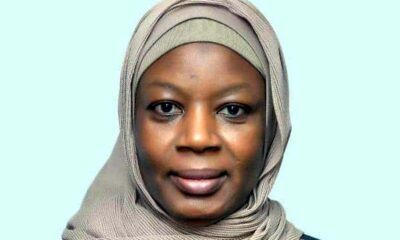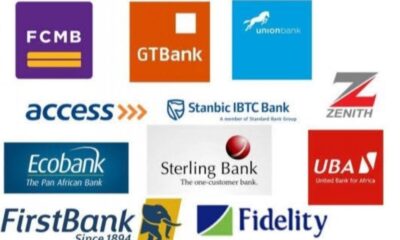Business
Bank customers pay N75.5bn account maintenance fee in six months
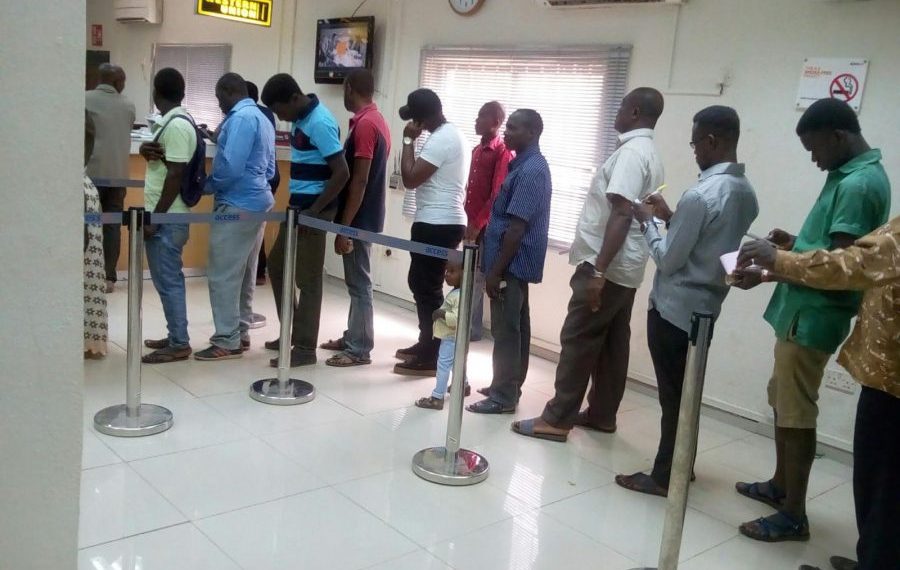
Bank customers in Nigeria paid N75.5bn as account maintenance charges between January and June of this year, which is an increase of 43 per cent over what was paid in the first half of last year, a study has revealed.
A report from the Vanguard also indicated that there was a sharp rise in the income the banks generated from electronic banking (e-banking) services rendered to the customers during the same period.
The e-banking income was said to have risen by 51 per cent to N113.84 billion from N75.26 billion in the first half of last year.
It stated, “The bank’s half year financial statements showed that account maintenance fees paid by bank customers rose sharply by 43 percent to N75.5 billion in H1’21 from N52.94 billion in H1’20.
Sterling Bank had the highest growth rate in account maintenance fee, up by 75 per cent to N1.4 billion in H1’21 from N800 million in H1’20.
“This was followed by UBA with 50 per cent rise to N5.4 billion from N3.6 billion in H1’20.
“The bank with the least growth in account maintenance fee was FCMB recording N2.2 billion in H1’21, up 29 per cent from N1.7 billion in H1’20.”
For the e-banking income, Zenith Bank was found to have recorded the highest growth rate with N17 billion, 91 per cent rise from N8.9 billion in H1’20.
Union Bank recorded a 3.3 per cent decline to N3.54 billion from N3.66 billion in H1’21.
The report quited President of the Bank Customers Association of Nigeria, Dr Uju Ogubunka, as attributing the growth in account maintenance fees and e-banking income to increased transactions by bank customers despite low income and slow business activities in H1’21.
He stated, “Several factors can make account maintenance fees grow. Like I said, it is a function of transaction. If transactions are increasing then, the banks will have a reason to charge that fee. Remember what the name is account maintenance and there is a rate stipulated by the regulatory authorities that should be charged.
“So, those rates once they are maintained and they are growing it means that the customers are transacting more than whatever one would have thought of.
“The only problem that you may have is that if it can be proved that the basis on which these fees are collected by the banks is not in line with the principles and regulatory requirements that guide the collection of the account maintenance fee.
“I think it will be for the regulators to find out why the cost or the fees are increasing even when suspiciously business is not moving, people are not transacting as much as they would have loved to in their banking activities. These are all in the minds. Nobody knows what is happening in reality and that is why the authorities should be able to now take a look at that.”
Business
Over 60% firms, individuals not paying tax, says LCCI president, warns against overtaxing
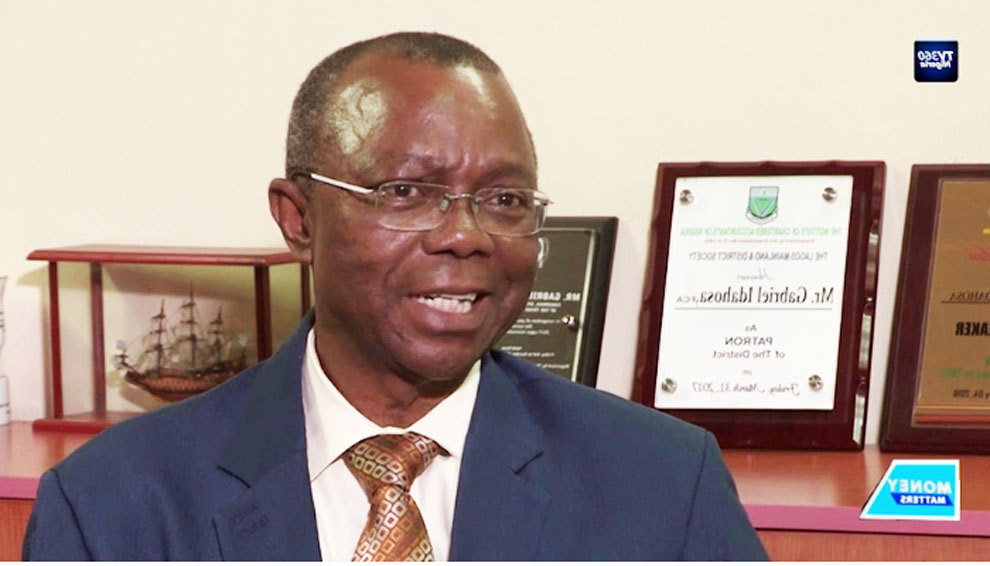
Over 60% firms, individuals not paying tax, says LCCI president, warns against overtaxing
President and Chairman of Council, Lagos Chamber of Commerce and Industry LCCI, Gabriel Idahosa, has cautioned against the multiplicity of taxes by the Federal Government, saying the development was not good for the economy. Speaking on an Arise television show monitored in Abuja, Idahosa said it was not possible to begin to raise money for every little thing in government.
He said the federal government should instead increase the capacity of the Federal Inland Revenue Service FIRS to collect taxes, noting that not up to 40 percent of taxable persons and organizations were taxed. According to him, the countries that are most efficient in tax collection are the countries that have the minimum number of taxes.
His words: “It is not really possible to begin to raise money for every little thing in government. To levy for cyber security, industrial training, insurance, levy for police trust fund and others, the whole approach in recent times of trying to put levy on everything is simply not the way to manage public finance in any country.
“The business of raising revenue for government is assigned to a specific organization in government which is the Federal Inland Revenue Service FIRS in the case of Nigeria. It is the business of the FIRS to get revenue for all the services of the Federal Government of Nigeria. The countries that are most efficient in tax collection are the countries that have the minimum number of taxes.
READ ALSO:
- No worker can survive on less than N100,000 minimum wage – Shehu Sani
- DSS manhandles two workers in N’Assembly
- 11 pipeline vandals arrested in Benue
It has been established during the time of the Taiwo Oyedele Tax Reform Commission that some of the levies and taxes that you create does not translate into significant increase in revenue and in any country, the agencies in charge of activities like these, whether it is high level intelligence or security, are funded from the budget of the country and the way they are funded usually is not a matter for public conversation. Nobody exposes the way the intelligence agencies of countries are funded.
“The technical issue of whether the Act was correct or not is minor. The big issue is should government of Nigeria encourage all agencies to be coming with all manner of levies for every single thing. You want something on health and you have a levy, in security you have a levy etc. That should be the more important conversation, that there should be a concerted effort to increase the capacity of the FIRS to do the job of revenue collection.
As we speak, not up to 40 percent of taxable persons are taxed. The first thing to do is to bring all taxable people into the net and then tax them accordingly. You don’t even need to raise the tax. More than 60 percent of taxable organizations and individuals are not paying tax. That should be the focus. The first level of taxation is identity. Identify economic actors at all levels right to the remotest villages.
The capacity of the FIRS to reach tax payers across the country was not built over time but with the dwindling of oil revenue, that capacity has been increased. You are beginning to see FIRS offices in several parts of the urban areas and state capitals but more than 60 percent of Nigerian businesses are not in the urban areas or state capitals. Any country that wants to collect tax, has to go very granular. Businesses that exist in every village must be taxed and that is where the FIRS is moving slowly but steadily”, he stated.
Over 60% firms, individuals not paying tax, says LCCI president, warns against overtaxing
Aviation
FAAN begins sale of e-tags at airports

FAAN begins sale of e-tags at airports
The Federal Airport Authority of Nigeria (FAAN) on Friday commenced the sale of electronic tags (e-tags) at airports.
The initiative, it said in a statement, was in line with the presidential directive that mandating the use of e-tags for accessing the nation’s federal airports.
“Following the presidential directive that all citizens are mandated to pay for e-tags at all the 24 federal airports across the country, we wish to inform the general public that the e-tags are available for sale from Friday, 17th May, 2024 at the following locations,” FAAN said.
“Lagos: Murtala Muhammed International Airport Lagos, Terminal 1, 5th Floor) Office of HOD Commercial. Contact: 08033713796 or 08023546030.
“Abuja: Nnamdi Azikiwe International Airport, HOD Commercial Office (General Aviation Terminal) Contact: 08034633527 or 08137561615.”
FAAN however said there would be an option to pay in cash at the access gates for motorists without e-tags.
On May 14, Minister of Aviation and Aerospace Development, Festus Keyamo, announced that everyone, including the President and Vice President, would pay tolls at the airports.
Keyamo said the government was losing over 82 per cent of the revenue it should have earned from the access fee.
Business
Your pension funds safe, won’t be accessed illegally, FG tells workers
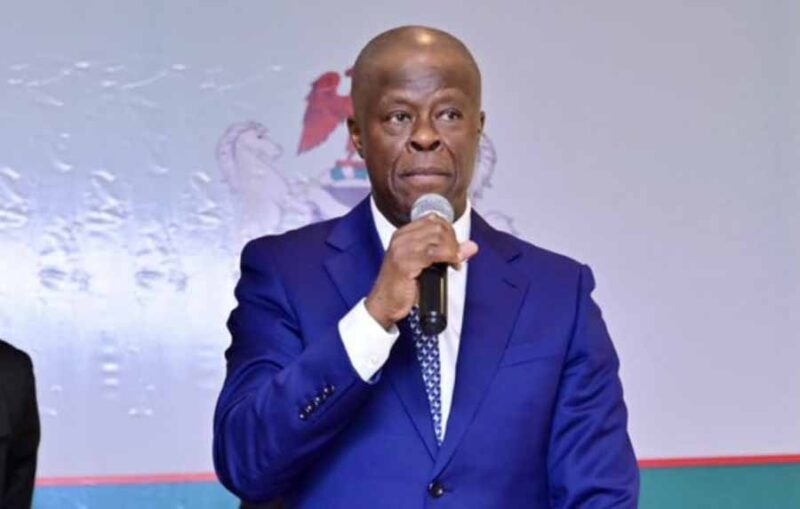
Your pension funds safe, won’t be accessed illegally, FG tells workers
Minister of Finance and Coordinating Minister of the Economy, Mr. Wale Edun, says the Federal Government has no plans of illegally accessing the N20 trillion pension funds for infrastructure development.
He said noone should entertain any fear over the safety of the contributions of workers that make up the pension funds.
Edun had earlier said the spoken on a move to use the pension funds as part of the government’s efforts to bridge Nigeria’s estimated 20 million housing deficit, and provide massive housing and mortgage loans at 12 per cent interest rates, with 25-year repayment plans.
The minister’s comments had elicited serious reactions from notable groups and Nigerians, including the organised labour and a former Vice President, Alhaji Atiku Abubakar, who advised the government to suspend the move.
Atiku said the move was potentially disastrous for retired Nigerians dependent on their pensions.
But in a statement personally issued on Thursday, Edun said the stories making the rounds that the government planned to illegally access the savings and pension contributions of workers were false.
He stated that the pension industry was guided by rules, adding that the government would be strictly guided by extant rules in accessing the pension funds of workers.
The minister stressed that government would not go outside the stipulated limitations on what the funds could be invested in.
The statement read in partu, “It has come to my notice that there are stories making the rounds that the Federal Government plans to illegally access the hard-earned savings and pension contributions of workers. Nothing could be farther from the truth.
“The pension industry, like most the financial industries, is highly regulated. There are rules. There are limitations about what pension money can be invested in and what it cannot be invested in.
“The Federal Government has no intention whatsoever to go beyond those limitations and go outside those bounds, which are there to safeguard the pensions of workers.
“What was announced to the Federal Executive Council was that there was an ongoing initiative drawing in all the major stakeholders in the long-term saving industry, those that handle funds that are available over a long period to see how, within the regulations and the laws, these funds could be used maximally to drive investment in key growth areas, including infrastructure, housing, and, of course, to find a way to provide Nigerians with affordable mortgages.
“Within this context, there is no attempt, nor is it being considered, to offer unsafe investments for pension funds or even insurance funds or any investment funds.
“No attempt whatsoever to increase the risk. No attempt whatsoever to lower the returns that would otherwise be earned.”
-

 Business2 days ago
Business2 days agoDollar crashes against Naira at official market
-

 News1 day ago
News1 day agoUsing pre-registered SIM card may land you in jail, NCC warns
-

 metro2 days ago
metro2 days agoThree police officers sentenced to life imprisonment in Anambra
-
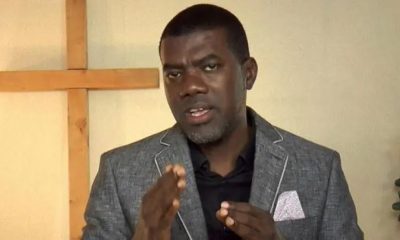
 News2 days ago
News2 days agoWike, Fubara are ego-driven, crude – Reno Omokri
-

 News2 days ago
News2 days agoUpdated: Reps condemn assault on Nasarawa female doctor by patient family
-

 International2 days ago
International2 days agoUK says it’s developing radio frequency to blast out drones
-

 metro19 hours ago
metro19 hours agoFire guts new NNPCL tank farm in Lagos
-

 Aviation2 days ago
Aviation2 days agoUpdated: We’ll resume Lagos-Dubai flights on October 1, says Emirates

